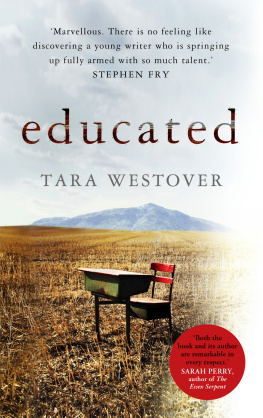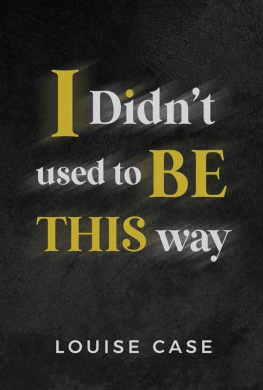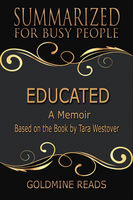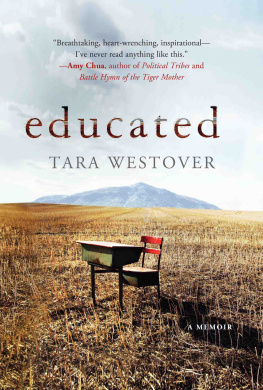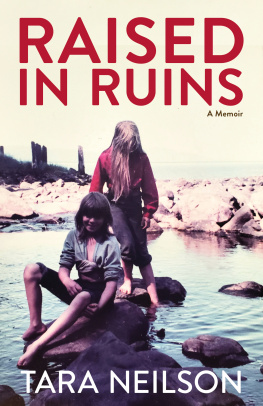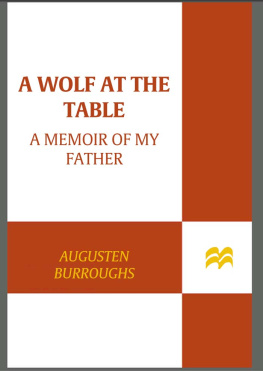This ebook is copyright material and must not be copied, reproduced, transferred, distributed, leased, licensed or publicly performed or used in any way except as specifically permitted in writing by the publishers, as allowed under the terms and conditions under which it was purchased or as strictly permitted by applicable copyright law. Any unauthorized distribution or use of this text may be a direct infringement of the authors and publishers rights and those responsible may be liable in law accordingly.
Epub ISBN: 9781473538641
Version 1.0
Published by Hutchinson 2018
1 3 5 7 9 10 8 6 4 2
Copyright Tara Westover 2018
School desk in field: Getty Images
Bucks Peak mountain: supplied by author
Tara Westover has asserted her right under the Copyright, Designs and Patents Act, 1988, to be identified as the author of this work.
This book is a work of non-fiction based on the experiences and recollections of the author. In some cases the names of people and other identifying details have been changed to protect the privacy of others. The author has stated to the publishers that, except in such minor respects, not affecting the substantial accuracy of the work, the contents of this book are true.
First published in the USA by Random House in 2018
First published in the United Kingdom by Hutchinson in 2018
Hutchinson
The Penguin Random House Group Limited
20 Vauxhall Bridge Road, London, SW1V 2SA
www.penguin.co.uk
Hutchinson is part of the Penguin Random House group of companies whose addresses can be found at global.penguinrandomhouse.com
A CIP catalogue record for this book is available from the British Library
ISBN 9781786330512
For Tyler
The past is beautiful because one never realises an emotion at the time. It expands later, & thus we dont have complete emotions about the present, only about the past.
Virginia Woolf
I believe finally that education must be conceived as a continuing reconstruction of experience; that the process and the goal of education are one and the same thing.
John Dewey
Authors Note
This story is not about Mormonism. Neither is it about any other form of religious belief. In it there are many types of people, some believers, some not; some kind, some not. The author disputes any correlation, positive or negative, between the two.
The following names, listed in alphabetical order, are pseudonyms: Aaron, Audrey, Benjamin, Emily, Erin, Faye, Gene, Jessica, Judy, Robert, Robin, Sadie, Shannon, Shawn, Susan, Vanessa.
Prologue
Im standing on the red railway car that sits abandoned next to the barn. The wind soars, whipping my hair across my face and pushing a chill down the open neck of my shirt. The gales are strong this close to the mountain, as if the peak itself is exhaling. Down below, the valley is peaceful, undisturbed. Meanwhile our farm dances: the heavy conifer trees sway slowly, while the sagebrush and thistles quiver, bowing before every puff and pocket of air. Behind me a gentle hill slopes upward and stitches itself to the mountain base. If I look up, I can see the dark form of the Indian Princess.
The hill is paved with wild wheat. If the conifers and sagebrush are soloists, the wheat field is a corps de ballet, each stem following all the rest in bursts of movement, a million ballerinas bending, one after the other, as great gales dent their golden heads. The shape of that dent lasts only a moment, and is as close as anyone gets to seeing wind.
Turning toward our house on the hillside, I see movements of a different kind, tall shadows stiffly pushing through the currents. My brothers are awake, testing the weather. I imagine my mother at the stove, hovering over bran pancakes. I picture my father hunched by the back door, lacing his steel-toed boots and threading his callused hands into welding gloves. On the highway below, the school bus rolls past without stopping.
I am only seven, but I understand that it is this fact, more than any other, that makes my family different: we dont go to school.
Dad worries that the Government will force us to go but it cant, because it doesnt know about us. Four of my parents seven children dont have birth certificates. We have no medical records because we were born at home and have never seen a doctor or nurse. We have no school records because weve never set foot in a classroom. When I am nine, I will be issued a Delayed Certificate of Birth, but at this moment, according to the state of Idaho and the federal government, I do not exist.
Of course I did exist. I had grown up preparing for the Days of Abomination, watching for the sun to darken, for the moon to drip as if with blood. I spent my summers bottling peaches and my winters rotating supplies. When the World of Men failed, my family would continue on, unaffected.
I had been educated in the rhythms of the mountain, rhythms in which change was never fundamental, only cyclical. The same sun appeared each morning, swept over the valley and dropped behind the peak. The snows that fell in winter always melted in the spring. Our lives were a cyclethe cycle of the day, the cycle of the seasonscircles of perpetual change that, when complete, meant nothing had changed at all. I believed my family was a part of this immortal pattern, that we were, in some sense, eternal. But eternity belonged only to the mountain.
Theres a story my father used to tell about the peak. She was a grand old thing, a cathedral of a mountain. The range had other mountains, taller, more imposing, but Bucks Peak was the most finely crafted. Its base spanned a mile, its dark form swelling out of the earth and rising into a flawless spire. From a distance, you could see the impression of a womans body on the mountain face: her legs formed of huge ravines, her hair a spray of pines fanning over the northern ridge. Her stance was commanding, one leg thrust forward in a powerful movement, more stride than step.
My father called her the Indian Princess. She emerged each year when the snows began to melt, facing south, watching the buffalo return to the valley. Dad said the nomadic Indians had watched for her appearance as a sign of spring, a signal the mountain was thawing, winter was over, and it was time to come home.
All my fathers stories were about our mountain, our valley, our jagged little patch of Idaho. He never told me what to do if I left the mountain, if I crossed oceans and continents and found myself in strange terrain, where I could no longer search the horizon for the Princess. He never told me how Id know when it was time to come home.
PART ONE
1
Choose the Good
My strongest memory is not a memory. Its something I imagined, then came to remember as if it had happened. The memory was formed when I was five, just before I turned six, from a story my father told in such detail that I and my brothers and sister had each conjured our own cinematic version, with gunfire and shouts. Mine had crickets. Thats the sound I hear as my family huddles in the kitchen, lights off, hiding from the Feds whove surrounded the house. A woman reaches for a glass of water and her silhouette is lighted by the moon. A shot echoes like the lash of a whip and she falls. In my memory its always Mother who falls, and she has a baby in her arms.
The baby doesnt make senseIm the youngest of my mothers seven childrenbut like I said, none of this happened.

